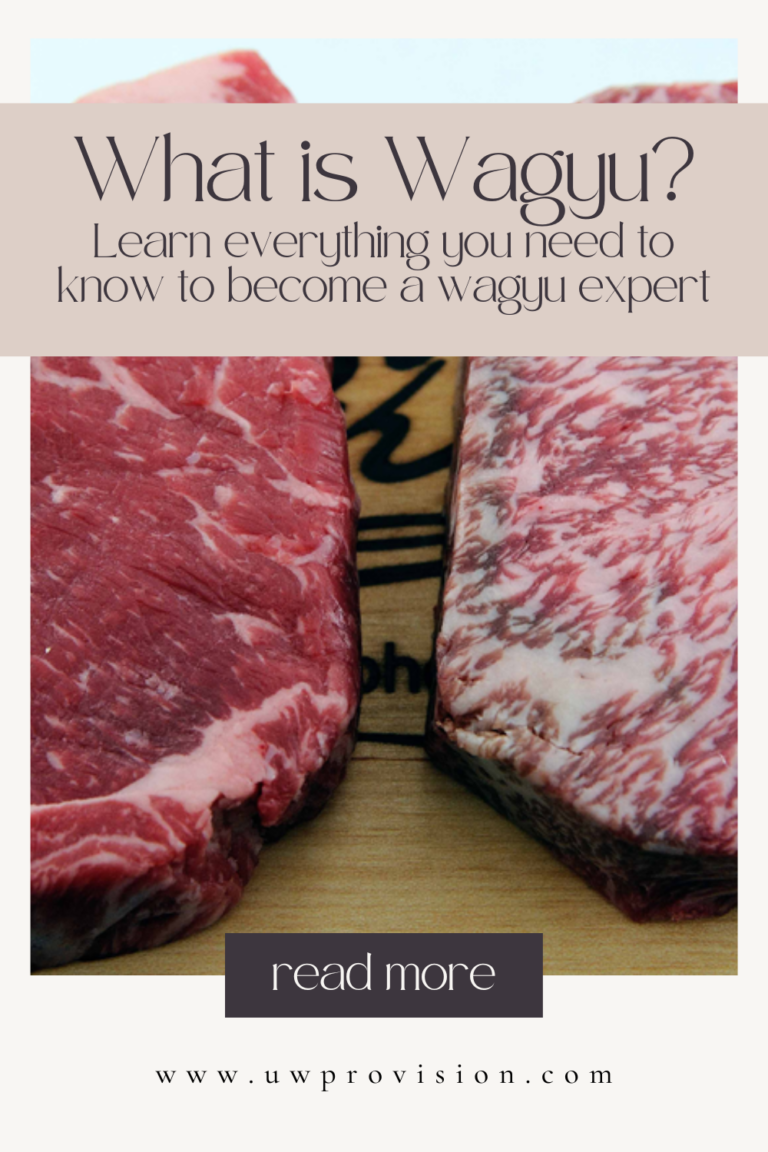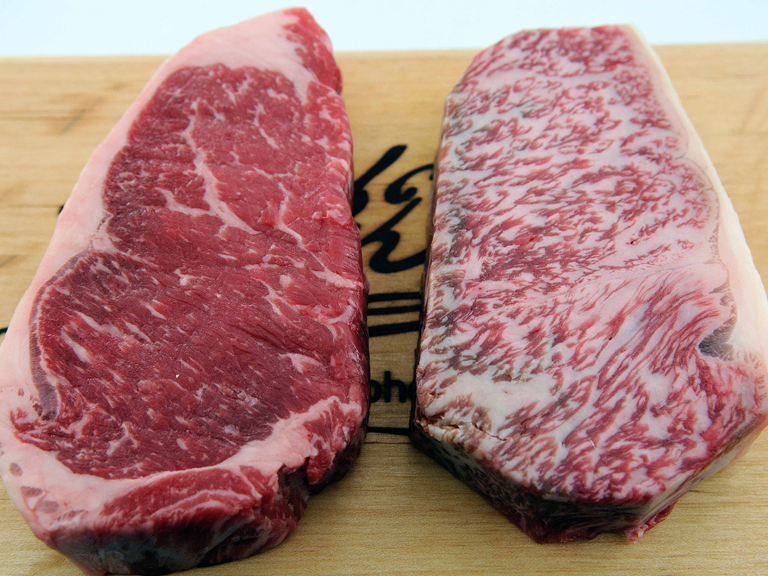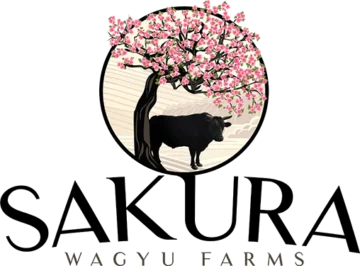
What is Wagyu?
05.25.2023• Beef, UW Provision News
Wagyu simply means “cow” in Japanese, but what does it mean in the meat industry?

It’s not just an umbrella term for any and all Japanese cattle, but refers to 4 specific breeds of Japanese cattle with specific genetic qualities that make them so special.. and soo tasty!
The most common of the Wagyu breeds is the Japanese Black, they account for over 90% of Japans cattle and have the strongest predisposition to the intense marbling that Wagyu is known for. There are three main bloodlines stemming from this breed, Tajima or Tajiri, Shimane, and Kedaka.
Of these three subspecies of Wagyu- Tajima cattle are the smallest, have slower growth rates, and the most tender meat. They are known for having the best tasting beef in the world and are highly regarded for full blood breeding in Japan today.
Shimane and Kedaka are known to have a larger frame and faster growth rates. Kedaka cattle have a slightly higher meat quality than Shimane, and have higher fertility levels than any breed, they are considered to play a critical role in Japanese fool-blood Wagyu production because of this.
Why Wagyu?
The main difference with Wagyu beef as opposed to your average steak, is the fat. With any average steak- you’ll usually find a fat cap on the outside and minimal marbling anywhere else. With Wagyu- you’ll find a unique marbling of fat inside the muscle tissue; this is caused by the way that Wagyu cattle are able to metabolize fat internally. And the result is a rich and tender beef that practically dissolves in your mouth!

Angus Strip Steak vs Wagyu Strip Steak
Despite the high levels of fat in Wagyu, it actually contains less cholesterol than traditional beef. This is because Wagyu breeds contain a high percentage of monounsaturated fats, “good fats” that our body uses for energy and cell growth. The unique buttery taste you get with Wagyu is associated with these fats which contain omega-3 and omega-6 acids– these are the fatty acids associated with lower risks of cancer, Alzheimer’s, and cardiovascular disease.
A Rare Breed
On top of having only 4 specific Wagyu breeds, there are strict regulations on which beef can actually be labeled ‘Wagyu’. The cattle must be carefully bred and raised in excellent conditions, they must be fed a balanced and high energy diet that helps to contribute to their intramuscular fat structure.
Because these cattle need so much attention, farmers can usually only house less than 100 cattle at a time. According to the American Wagyu Association, there are roughly 40,000 Wagyu cows in the U.S. and less than 5,000 of those are 100% purebred (.029%). But it pays off! Only about 3% of beef in the US is considered Prime grade- of that 3%, Wagyu makes up 90%!

To learn about where we source our Wagyu from, Click here!
To learn more about the classification breakdown of American Wagyu, click here
To learn more about the different Wagyu breeds, click here
